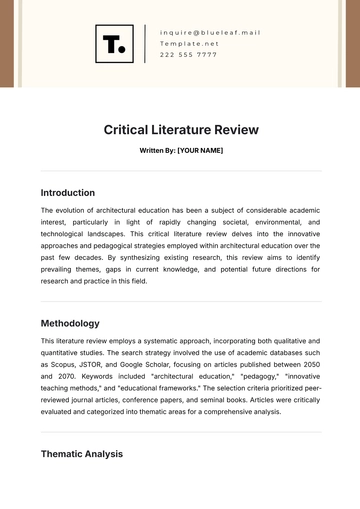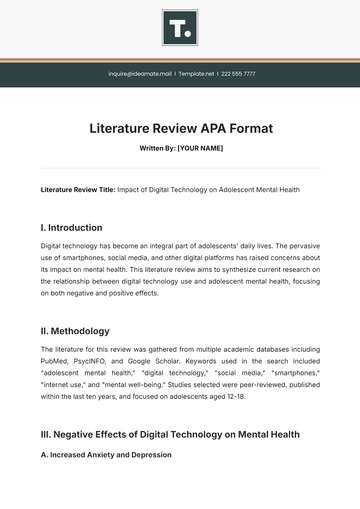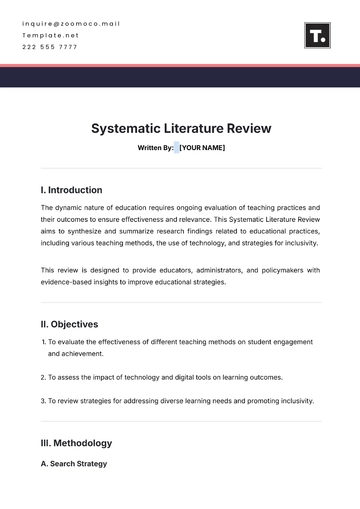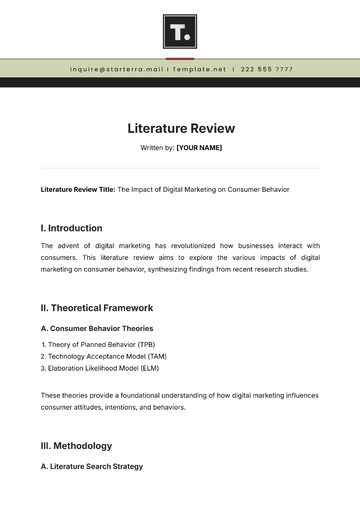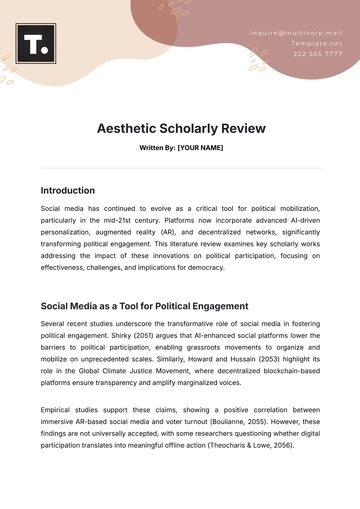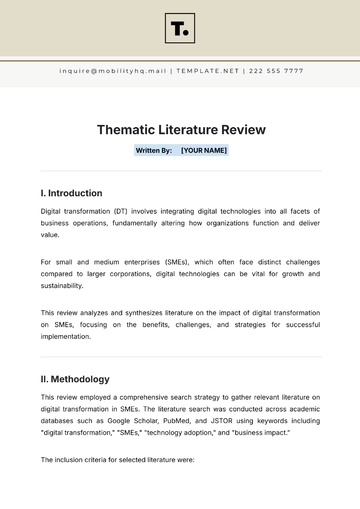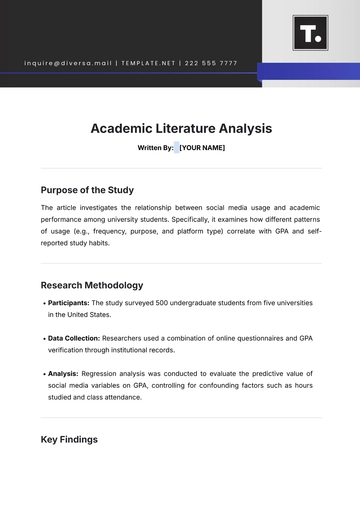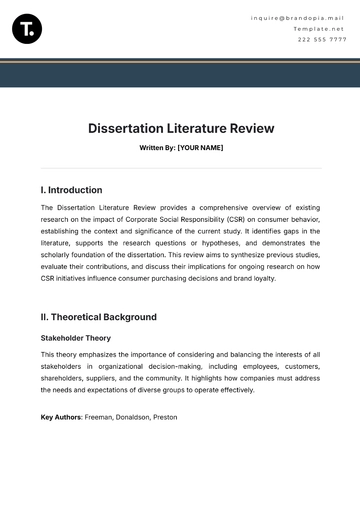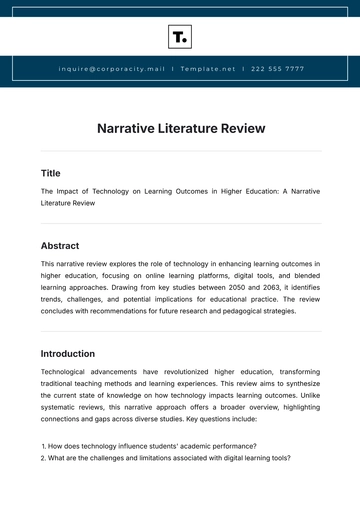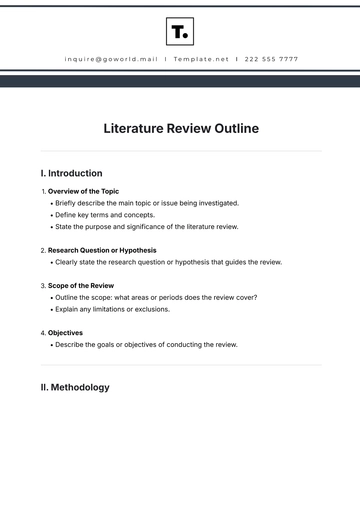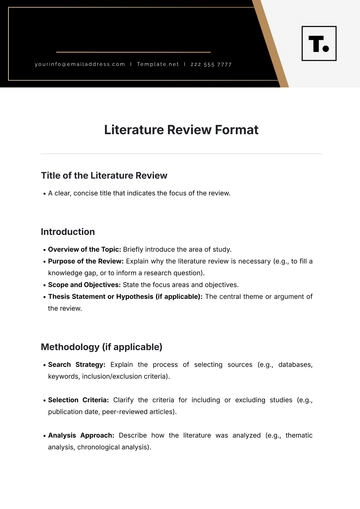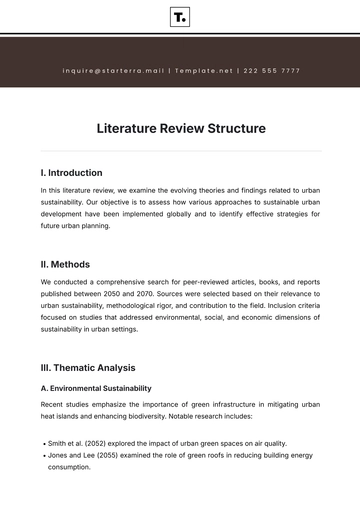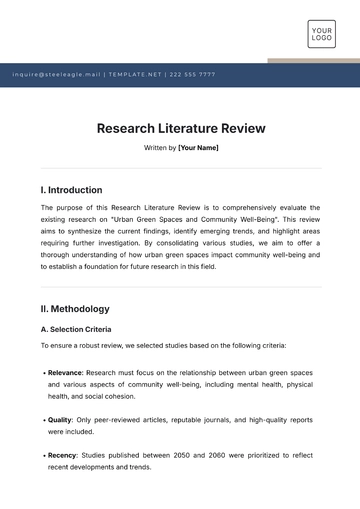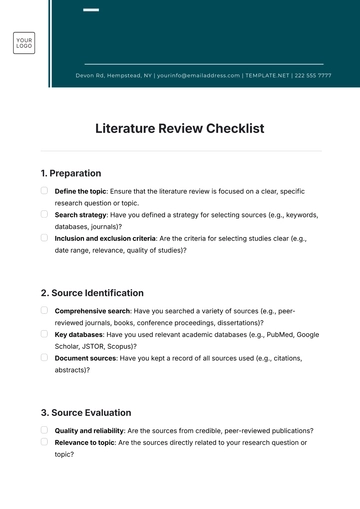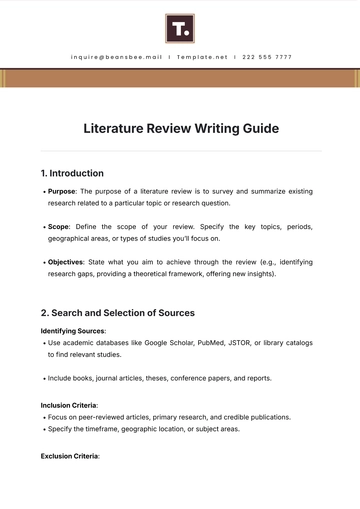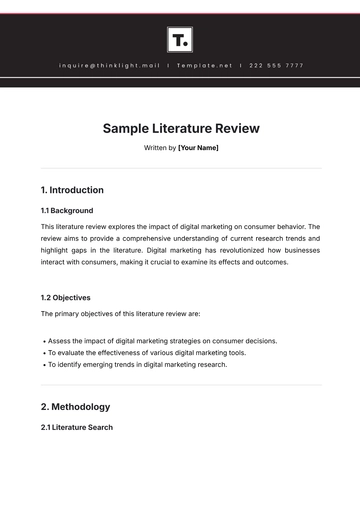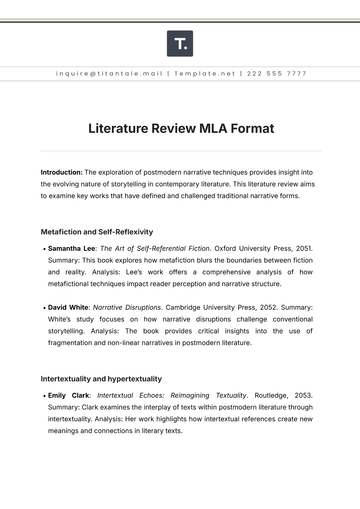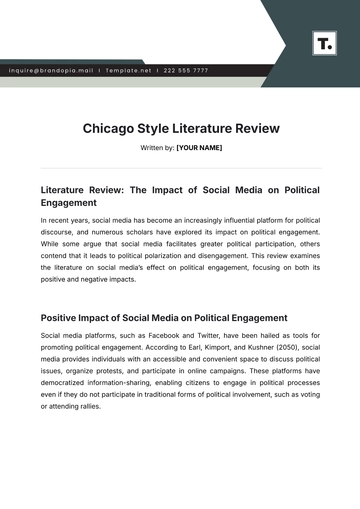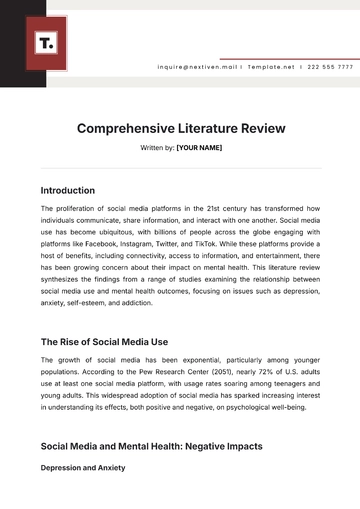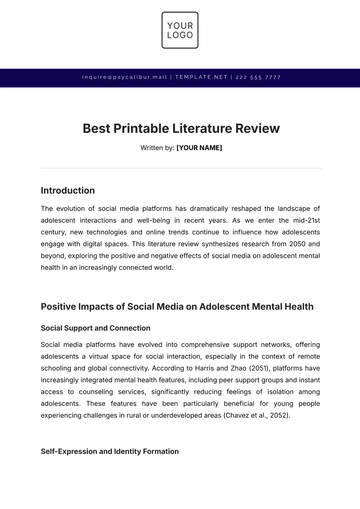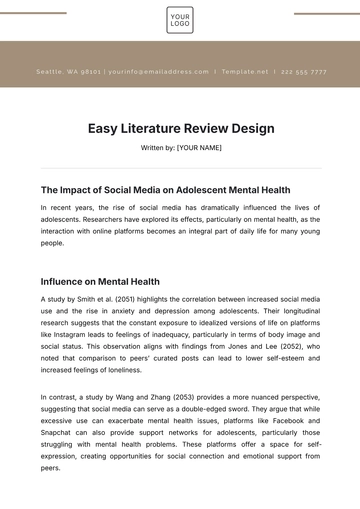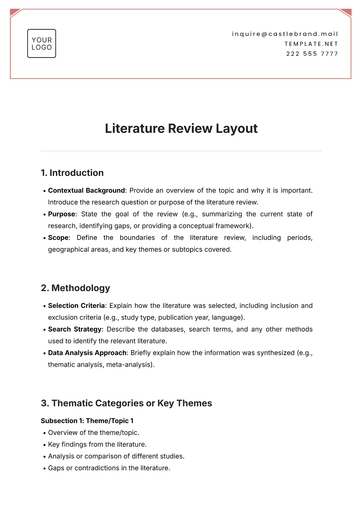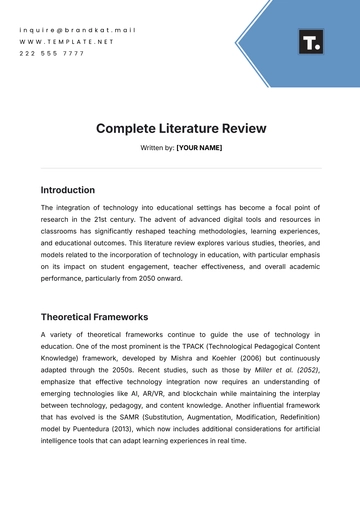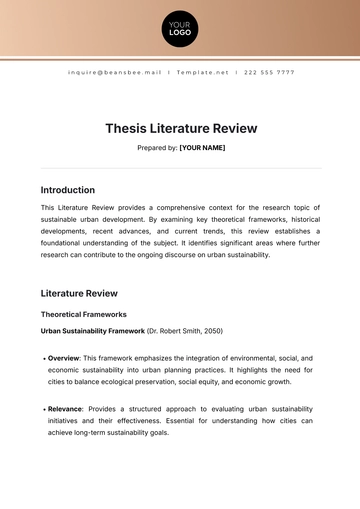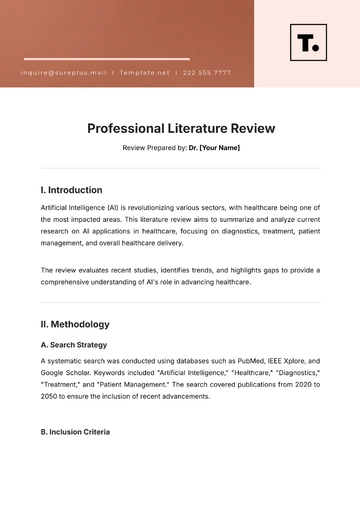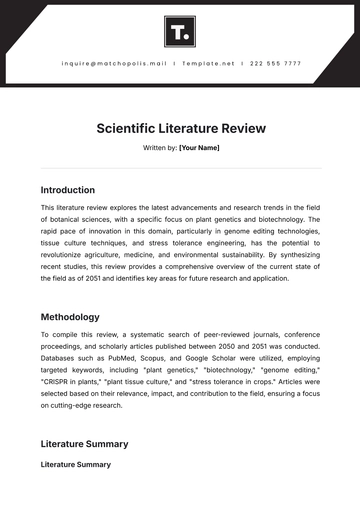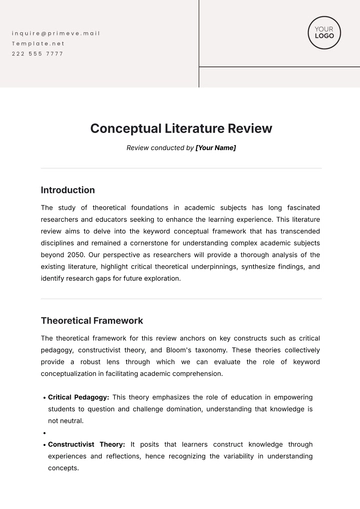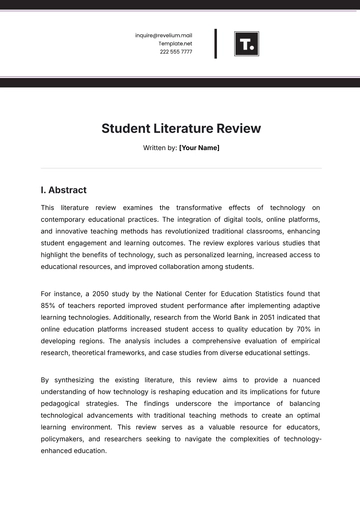Free Aesthetic Scholarly Review
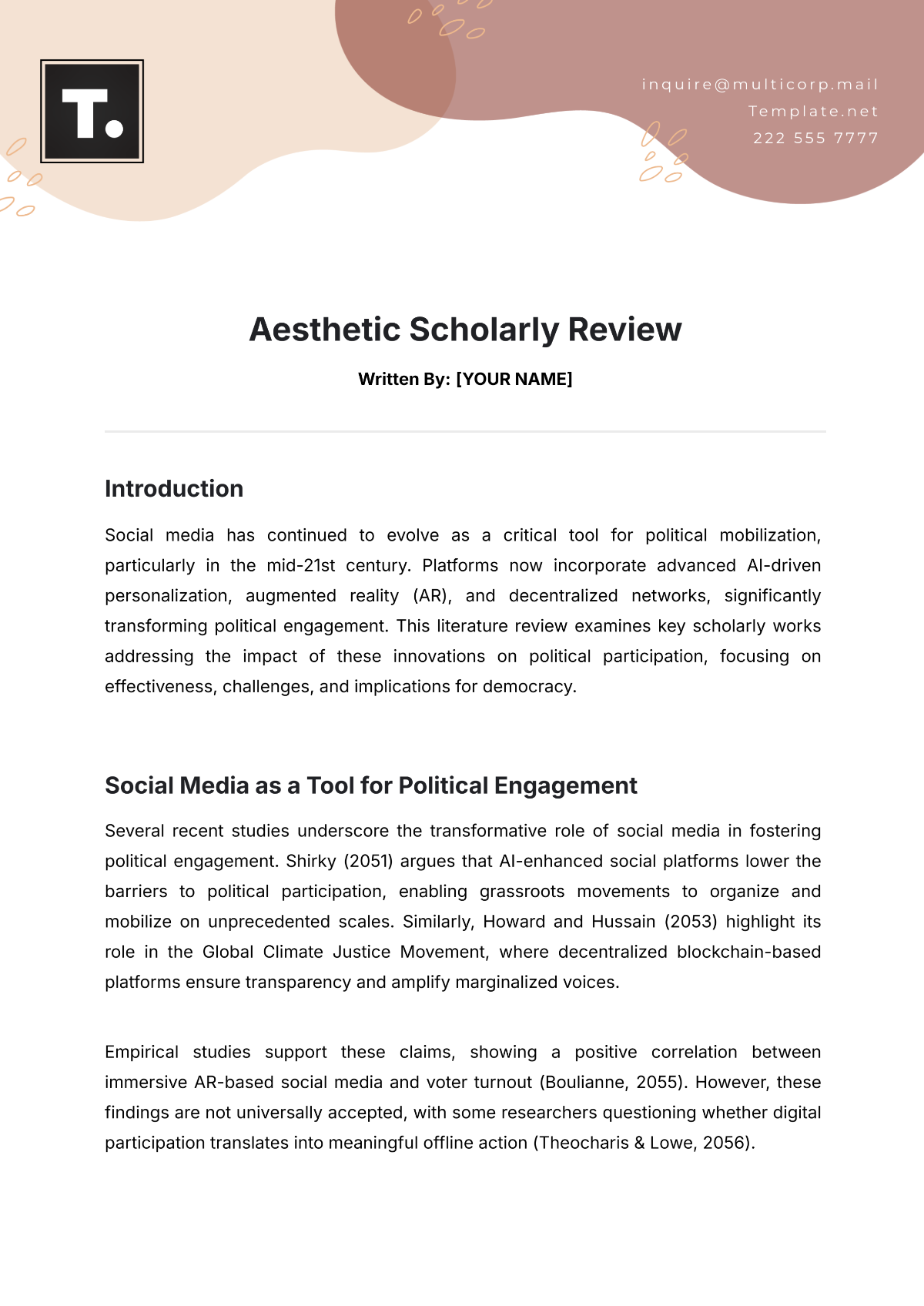
Written By: [YOUR NAME]
Introduction
Social media has continued to evolve as a critical tool for political mobilization, particularly in the mid-21st century. Platforms now incorporate advanced AI-driven personalization, augmented reality (AR), and decentralized networks, significantly transforming political engagement. This literature review examines key scholarly works addressing the impact of these innovations on political participation, focusing on effectiveness, challenges, and implications for democracy.
Social Media as a Tool for Political Engagement
Several recent studies underscore the transformative role of social media in fostering political engagement. Shirky (2051) argues that AI-enhanced social platforms lower the barriers to political participation, enabling grassroots movements to organize and mobilize on unprecedented scales. Similarly, Howard and Hussain (2053) highlight its role in the Global Climate Justice Movement, where decentralized blockchain-based platforms ensure transparency and amplify marginalized voices.
Empirical studies support these claims, showing a positive correlation between immersive AR-based social media and voter turnout (Boulianne, 2055). However, these findings are not universally accepted, with some researchers questioning whether digital participation translates into meaningful offline action (Theocharis & Lowe, 2056).
Challenges and Limitations
Despite its potential, 21st-century social media presents unique challenges. Advanced AI algorithms have amplified misinformation, creating hyper-realistic "deepfakes" that blur the line between truth and fiction (Allcott & Gentzkow, 2057). Pariser (2051) warns that the rise of personalized "meta-worlds" has intensified echo chambers, further polarizing societies and limiting exposure to diverse perspectives.
Moreover, unequal access to advanced digital tools exacerbates existing disparities. Norris (2050) identifies a "digital participation gap," where low-income populations face barriers to engaging in increasingly complex virtual political spaces.
Implications for Democracy
The implications of these technological advancements for democracy are multifaceted. While social media has democratized access to immersive political experiences and empowered underrepresented groups, it has also raised ethical concerns. Zuboff (2059) critiques the rise of "surveillance democracies," where personal data collected through AR and AI is leveraged to manipulate political behavior.
Additionally, the environmental impact of blockchain-based platforms, as highlighted by recent studies, poses sustainability challenges for digital political engagement. Future research must address how to balance the ecological costs of these technologies with their democratic benefits.
Conclusion
The scholarly consensus is that while social media innovations offer significant opportunities for political mobilization, they also introduce challenges that must be addressed to safeguard democratic values in the 21st century. Future research should prioritize strategies to mitigate the risks of misinformation and polarization while ensuring equitable access to digital engagement tools.
References
Allcott, H., & Gentzkow, M. (2057). The Role of Deepfakes in Political Manipulation. Journal of Future Perspectives, 51(2), 211-236.
Boulianne, S. (2055). Immersive Social Media and Participation: A Meta-Analysis. Information, Communication & Society, 55(3), 524-538.
Howard, P. N., & Hussain, M. M. (2053). Digital Movements in the Climate Justice Era. Oxford University Press.
Norris, P. (2050). The Digital Participation Gap: Challenges for Inclusion. New Political Science Review, 42(1), 101-122.
Pariser, E. (2051). Personalized Meta-Worlds and the Future of Public Discourse. Penguin.
Shirky, C. (2051). AI and the Political Power of Social Media. Foreign Affairs, 110(1), 28-41.
Theocharis, Y., & Lowe, W. (2056). Blockchain and Political Participation: Evidence from Experimental Studies. Political Communication, 60(1), 188-204.
Zuboff, S. (2059). Surveillance Democracies: Data, Power, and Politics in the 21st Century. PublicAffairs.
- 100% Customizable, free editor
- Access 1 Million+ Templates, photo’s & graphics
- Download or share as a template
- Click and replace photos, graphics, text, backgrounds
- Resize, crop, AI write & more
- Access advanced editor
Present your academic insights elegantly with Template.net’s Aesthetic Scholarly Review Template. This customizable and editable template ensures that your scholarly reviews are visually engaging and professionally formatted. Editable in our AI Editor Tool, it’s suitable for academic and research purposes. Tailor it to your specific needs effortlessly and create a polished review that stands out. Download this template to simplify your documentation process and showcase your analysis with style and clarity.
